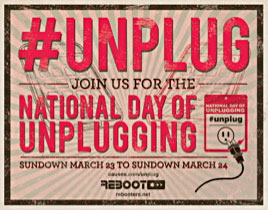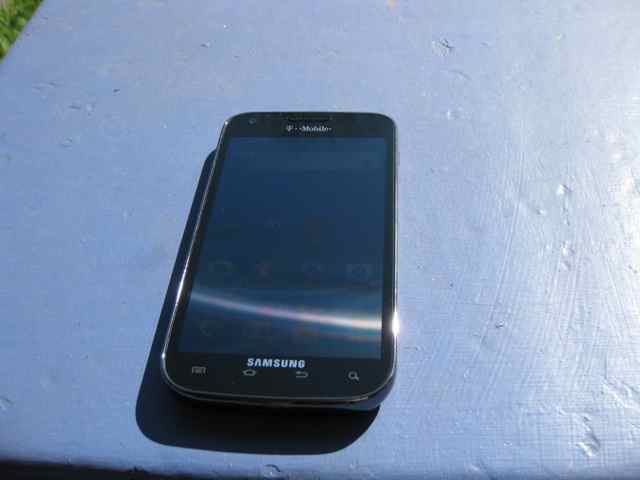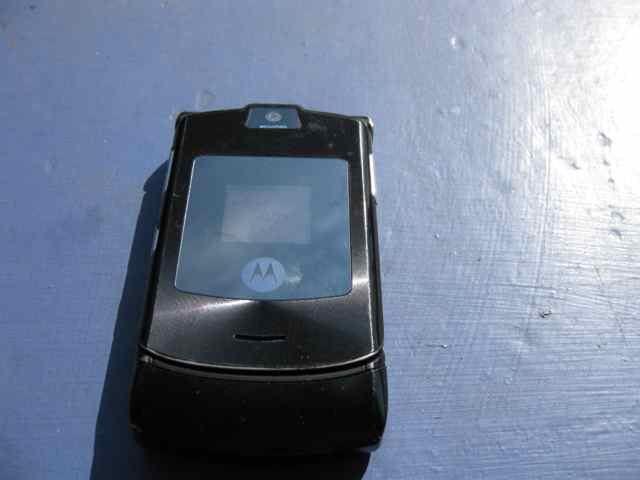Paradox? I will observe the National Day of Unplugging but just bought my first smartphone this week!
Mar 22, 2012 · 6 minute read · CommentssmartphoneNational Day of Unplugginginformation diet

National Day of Unplugging 2012
Just in February, I heard of the National Day of Unplugging scheduled for March 23-24, 2012, and immediately put it on my calendar, with the hope of observing it.
For some time, I’ve been struggling with being increasingly plugged into the Internet, and Clay Johnson has been advocating an information diet, so I decided to do this day of unplugging as an experiment, to observe what my habits have been and learn something about myself.
Ironically, on Wednesday I just bought my first smartphone, after years of never having used one. So what’s going on?!

Brand new Samsung Galaxy S II
Why an information diet?
I spend a lot of time in front of a computer, whether at work, at home on my main computer (a 2008 MacBook connected to an external display), or on my iPad 2. The first thing I have to say up front is that I am not a Luddite. I actively use technology as a tool, as an extension of myself. As a software developer, I actively create tools to help people do their jobs. I use the Web as a source of knowledge, wisdom, and social connection. It is completely unimaginable what my life would be like if not for the past 15 years of Web access. In fact, my life was completely different in every possible way before the Web came along, and I was a completely different person.
So my goal is not to “unplug” permanently, or arbitrarily set limits on computer or Internet use. My goal is to take control of the resources in an active, deliberate way, rather than default to passively being overwhelmed both by distractions and by too much of a good thing.
The diet needs to extend to every aspect of being plugged in. For me, the main problem is too much useful information: given any topic I’m interested in, I could spend forever learning about it online, even if I need to focus my limited time and attention on fewer topics rather than many. For others, the social aspect may be the main problem. Even for me, an introvert, it is hard to keep up with the social networks I’m part of; I always have too many emails to deal with at length.
Michael Ellsberg just put up a heartfelt video in which he talks about the social aspect of overload; I recommend watching it.
Observing the National Day of Unplugging
For the National Day of Unplugging, I will monitor in detail what I miss when I unplug, and what I gain when I unplug, and then report back on what I learned, what surprised me, and how I might change up my regular routines.
If you have not already made plans that require being plugged in on Saturday, I suggest joining me in observing the National Day of Unplugging and sharing what you learned from it also!
Why my first smartphone?
Old phone died

Motorola Razr V3t with blank display
The short story is that on Tuesday, the display of my five-year-old cell phone, a Motorola Razr V3t I bought in January 2007, went blank, and so it was time to finally upgrade my phone. I had been thinking for a year or two now of getting a smartphone, because the display had become flaky and battery life decreasing, but had not because
- I did not really need a smartphone.
- Smartphones are expensive.
- Data plans are expensive.
Why a smartphone, not a new “dumbphone”?
One thing I missed about not having a smartphone was having a high-quality camera on me at all times. I believe a camera is a very useful tool in many situations, for photos and videos. I hardly ever used the terrible camera of my old cell phone. I also never put any apps on it, never listened to any music on it. My old cell phone was just for making phone calls; I never texted either.
There are many other reasons a smartphone could be useful in my life (for example, during travel I could have used a smartphone in the past couple of years!), but instead of listing speculations, I’ll just see what happens and report on the benefits. Meanwhile, I realize that the potential for it becoming a distraction truly exists, because for five years since the iPhone came out, I see, on a daily basis, people being completely, utterly distracted by their smartphones in a way that I hope I never will be.
There are much cheaper data plans now than in the past, so it finally seemed reasonable to get a smartphone now.
It’s been two days since I bought my new phone, and I actually haven’t had any time yet to do much with it. All I’ve done is learn how to make a call and answer the phone, and connect it to WiFi and email.
I have an interest in possibly getting into developing apps for mobile devices, and maybe actually owning a smartphone will encourage me to give it a shot!
Which smartphone?
I have an iPad 2 and use Macs, so you might think I would get an iPhone, but I didn’t. Why? First of all, I’m on T-Mobile, and there’s no iPhone support for T-Mobile. Second, developing for Android is more pleasant than developing for iOS.
I got a Samsung Galaxy S II. Yes, it’s expensive, but given my policy of using devices for many years (my first car lasted me 14 years, and I’m still using a 2008 MacBook), I have found from experience that I last longer between upgrades if I get something that isn’t entry level. I don’t want to be buying a new smartphone for another five years.
Ironically, just after I bought this phone, I saw an article saying that now is the time to wait for the Samsung Galaxy S III and the like. (I didn’t even bother to skim that article, after following the link to it, because the last thing I need is buyer’s remorse.) But let’s face it, one could wait forever for everything. I needed a new phone now. And the iPad 3 just came out, but Abby and I have made much use of the iPad 2 during the time we’ve owned it.
Meanwhile, I’ll keep note of advice such Henrik Edberg’s recent blog post about how not to let your smartphone take over your attention and life.
Conclusion
I look forward both to observing the National Day of Unplugging and also to exploring how my new smartphone can benefit my life. I don’t think it is necessarily paradoxical to embrace technology while also being careful and reflective about it, just being honest with ourselves and observing ourselves.